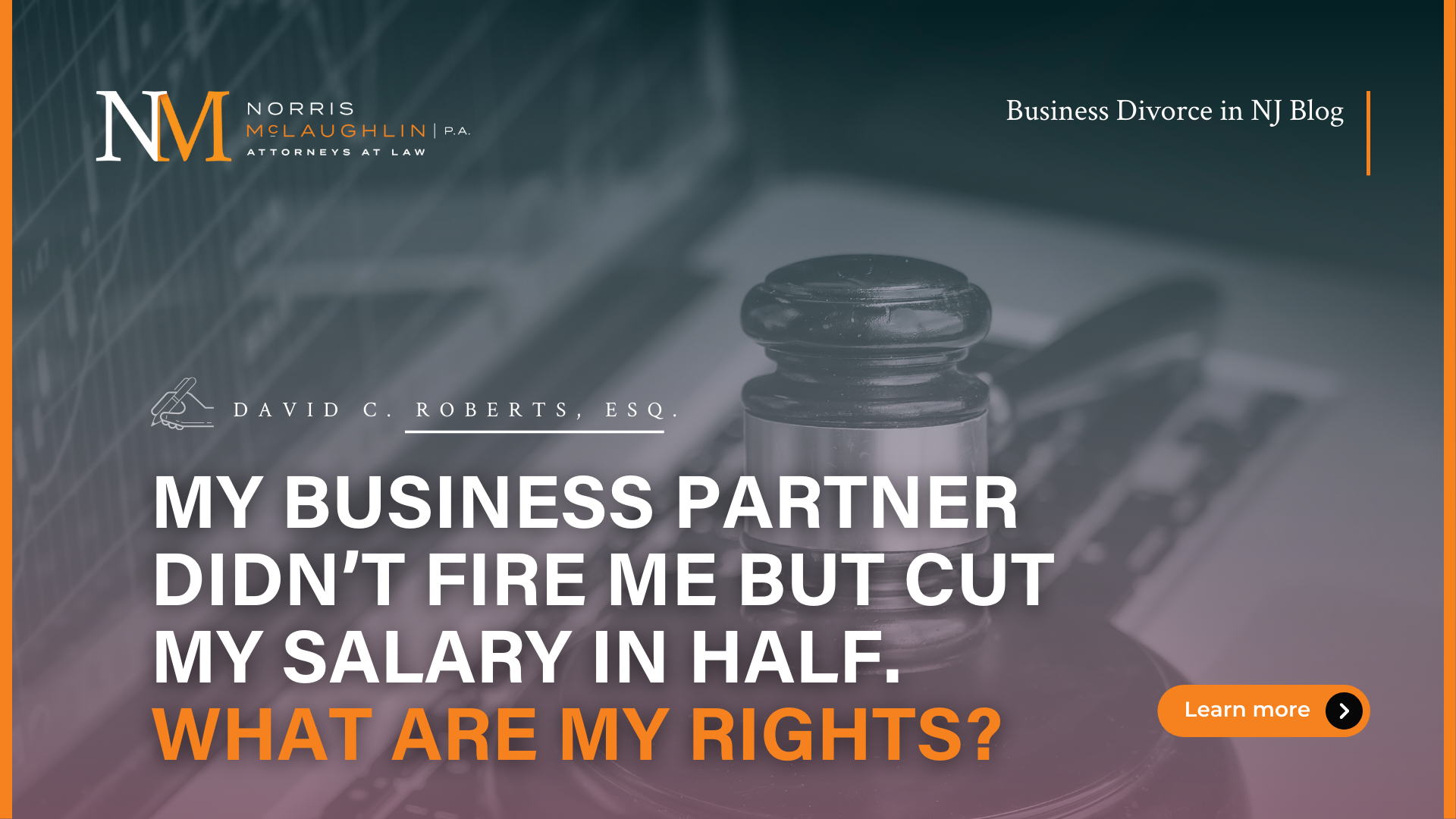Don’t Let Ego – Yours or Your Attorney’s – Get in The Way of a Settlement

The truth about business divorce litigation in New Jersey is that most of them result in some sort of buyout. An entire (expensive) litigation often takes place over related and critical issues, such as who will be the buyer and who will sell; valuation issues, including (sometimes) the valuation date; and the equalization of money (such as when one side has paid itself too much). But more often than not, these issues all point to an inevitable buyout.
It would be far easier to resolve these issues amicably than to fight each one out as if one’s life depended on the outcome. If the parties could settle matters themselves, they would walk into an attorney’s office with a deal in place that they want “papered.” However, business owners often come in after the business relationship is irretrievably destroyed, and the negotiation that should ensue gives way to all-out-war.
If you want an attorney to take no prisoners and engage in pitched battle, that is your right, and is sometimes necessary. However, I have learned after focusing on shareholder dispute litigation for more than two decades that it is often the attorney who sets the tone in settlement discussions. Clients can be refocused by a skilled attorney, their anger redirected on productive approaches to the problem at hand. For example, it is one thing to show the other side that you are absolutely not afraid to take the deposition of company customers and vendors, and then attempt to see if a settlement may be reached before taking such a drastic step. It is yet another to spend tens of thousands of dollars to simply plow ahead with such a strategy, without even seeing if this disruptive and possibly damaging discovery could possibly be avoided while still allowing you to achieve the settlement you want.
Considering your own attorney’s behavior is frequently an overlooked point because clients often focus on the other side’s attorney as a source of friction and an impediment to settlement. However, it is just as important that your own attorney not unwittingly become the problem. You should hire an attorney who is able to provide you with options, ranging from full frontal attacks to more measured tactics, explain the cost and benefit of each, and let you play a large role in directing your own case – with substantial guidance. Litigation is costly enough and does not need to be made more so by someone who is supposed to be fighting for you, not fighting just to fight.
If you have any questions about this post or any other related matters, please contact me at dcroberts@norris-law.com.




